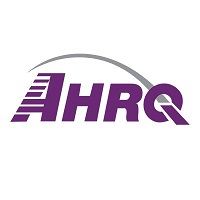 By Gopal Khanna, M.B.A., Director of AHRQ &
By Gopal Khanna, M.B.A., Director of AHRQ &
Joe Selby, M.D., M.P.H., Executive Director of PCORI
Twitter: @AHRQNews
The health care community is finding common ground when it comes to identifying essential elements of a learning health system (LHS). At their core, organizations that apply LHS principles are committed to improving patient care through the generation, adoption, and application of evidence to improve health care quality and safety and patients’ outcomes.
However, the promise of better care through the rigorous use of evidence cannot be realized without an ingredient that’s even more basic: a health care workforce properly trained to conduct research within a learning health system.
With that pressing need in mind, our organizations—the Agency for Healthcare Research and Quality (AHRQ) and the Patient-Centered Outcomes Research Institute (PCORI)—are excited to collaborate on an initiative to award up to $8 million in total annually to as many as 10 institutions to support training programs to establish a sustainable corps of learning-health-system researchers.
As summarized in a new funding opportunity announcement, the ideal LHS researcher works within a health system, encourages collaboration with other scholars and stakeholders, and is involved in the rapid, continuous production and translation of evidence into patient-centered care.
We envision that programs supported by these training funds will prepare clinician scientists and research scientists for independent research careers within care delivery systems, equipping the scientists to advance the field through their training and scholarship as the next generation of LHS researchers.
Applicants must be academic institutions or health care systems with a track record of excellence in training clinical research scientists to work and conduct research within these systems. Academic applicants must establish collaborative relationships with at least one health system. Health system applicants are encouraged to demonstrate collaborative relationships with at least one academic training institution.
We believe this approach will produce a cadre of researchers, mentors, and rapid learning initiatives that can accelerate health system performance and improvements in patient outcomes. These improvements will come through application of core LHS competencies, which include integration of the principles and practices of patient-centered outcomes research (PCOR).
The ultimate goal, of course, is to improve the quality of care and patient outcomes. For that reason this effort focuses on the best ways to provide trainees skills in patient-centered methods to rapidly implement evidence.
While the full details appear in the funding opportunity announcement, applicants are generally expected to:
- Identify, recruit, and train clinician and research scientists
- Establish LHS Centers of Excellence
- Support a learning collaborative across the Centers of Excellence
- Demonstrate a focus on conducting PCOR
In their proposals and training programs, applicants will also be expected to apply AHRQ’s LHS researcher core competencies, knowledge- and skill-based competencies that guide the design, implementation, and evaluation of training programs for LHS researchers. They must also incorporate the PCORI Methodology Standards in their curricula.
This partnership further aligns with both AHRQ’s and PCORI’s organizational goals. AHRQ has made it a priority to support the training of researchers in the health care workforce to put the results of research into practice; and PCORI has made it a goal to help patients and those who care for them make better-informed decisions about the health care choices they face through the conduct of patient-centered comparative effectiveness research. With these combined goals, the potential is enormous for improving efficiency and quality of patient care.
We believe coming together will help achieve these shared goals. The deadline to apply for this funding opportunity is January 24, 2018. We look forward to receiving excellent proposals!
This article was originally published on AHRQ Views Blog and is republished here with permission.
